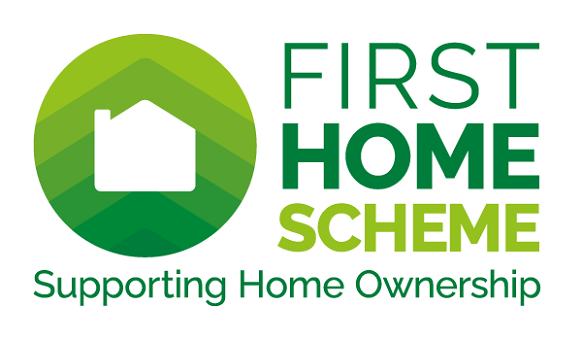First Homes Scheme: A Comprehensive Guide for First-Time Buyers or Key Workers
First Homes Scheme: How the UK Government is Making Homeownership Easier
Buying a first home can be a daunting task. Especially for those who are just starting to build their careers and savings. The UK government is aware of this and has launched several schemes to make homeownership more accessible to first-time buyers. One of the most recent initiatives is the First Homes Scheme. Which offers discounts of up to 30% on new-build properties. In this article, we will discuss what the First Homes Scheme is? who is eligible to apply? how it works? and other things you need to know before considering it as an option.
1. What is the First Homes Scheme?
The First Homes Scheme is a government-backed initiative. That offers a discount of up to 30% on new-build properties to first-time buyers. The discount applies to the purchase price of the property. It stays with the property even if it is sold again in the future. The scheme is designed to make homeownership more affordable for first-time buyers. Especially those who might struggle to save enough for a deposit or get a large enough mortgage.
2. Why was the First Homes Scheme introduced?
The First Homes Scheme was introduced as part of the government’s efforts to increase homeownership. Particularly among young people and key workers. The scheme aims to address two main issues: the high cost of housing and the lack of affordable homes. By offering discounts on new-build properties, the government hopes to make it easier to get on the property ladder. It also encourages the development of more affordable homes.
3. Who is eligible for the First Homes Scheme?
To be eligible for the First Homes Scheme, you need to meet the following criteria:
- You must be a first-time buyer or a key worker.
- You must have a combined household income of less than £80,000 per year, or less than £90,000 per year if you are buying a property in London.
- You must be able to secure a mortgage and put down a deposit of at least 5%.
- You must live in the property as your main residence.
4. How does the First Homes Scheme work?
The First Homes Scheme mandates developers to provide a minimum of 25% of their newly built properties at a discounted rate of up to 30% to eligible first-time buyers. Eligible buyers receive the discount applied to the property’s purchase price, and it remains with the property, even if the property is resold in the future. The scheme prohibits any increase in the discount or its transfer to another property once a property is sold under the program.
5. How much discount can you get with the First Homes Scheme?
The discount you can get under the First Homes Scheme depends on the discount rate set by the local authority where the property is located. Depending on the area, the discount rate varies from 30% to 50% of the market value of the property. The discount rate for each property is set at the point of planning permission, so buyers will know exactly how much discount they can expect before they apply.
6. How to apply for the First Homes Scheme?
To apply for the First Homes Scheme, you need to follow these steps:
- Check if you are eligible for the scheme by visiting the government’s website or contacting your local authority.
- Find a property that is eligible for the scheme. You can do this by searching on property websites or contacting local developers.
- Contact the developer to confirm that the property is available under the scheme and to discuss any details or questions you may have.
- Apply for a mortgage and put down a deposit of at least 5% of the purchase price.
- Apply for the scheme through your local authority. You will need to provide proof of your eligibility and your mortgage offer.
- If your application is successful, you will be able to purchase the property at a discounted price.
7. What are the pros and cons of the First Homes Scheme?
Like any government scheme, the First Homes Scheme has both advantages and disadvantages. Here are some of the main ones:
Pros:
- The scheme offers a significant discount on new-build properties, making homeownership more affordable for first-time buyers.
- The discount stays with the property, so even if you decide to sell it in the future, the new owner will still benefit from the discount.
- The scheme supports the development of more affordable homes, which can help to address the housing shortage in the UK.
- The scheme is open to key workers, who may struggle to find affordable housing in the areas where they work.
Cons:
- The scheme is only available on new-build properties, which may limit the choice of homes available to buyers.
- The discount rate varies depending on the area, which means that buyers in some areas may receive a smaller discount than those in others.
- The scheme is only available to first-time buyers and key workers, which means that it may not help those who are struggling to move up the property ladder.
- The scheme may have a limited impact on the overall affordability of homes in the UK.
8. Are there any alternatives to the First Homes Scheme?
If you are a first-time buyer or a key worker and are looking for ways to make homeownership more affordable, there are several other government schemes and initiatives that you may be eligible for. These include:
- Help to Buy: Equity Loan
- Shared Ownership
- Rent to Buy
- Right to Buy
Each scheme has its own eligibility criteria and benefits, so it is important to research them carefully and speak to a financial advisor before making a decision.
9. What are the criteria for a property to be eligible for the First Homes Scheme?
To be eligible for the First Homes Scheme, a property must meet the following criteria:
- It must be a new-build property.
- It must be located in England.
- It must be sold at a discount of at least 30% of the market value.
- It must be sold to a first-time buyer or a key worker.
- It must be subject to a Section 106 agreement, which requires developers to provide affordable housing as part of their planning permission.
10. How does the First Homes Scheme affect the housing market?
The First Homes Scheme is designed to increase homeownership rates among first-time buyers and key workers, but it may
Continue writing please Please write in English language.
also have an impact on the wider housing market. Some experts have raised concerns that the scheme may cause property prices to rise, as developers may increase their prices to offset the discount they are required to provide.
However, supporters of the scheme argue that it will not have a significant impact on the overall housing market, as it only applies to new-build properties and is limited to a small percentage of the housing stock. Additionally, the scheme may help to stimulate the construction industry by increasing demand for new homes.
Conclusion
The First Homes Scheme is a government initiative that aims to make homeownership more affordable for first-time buyers and key workers. Under the scheme, eligible buyers can purchase a new-build property at a discount of at least 30% of the market value. While the scheme has its advantages, such as making homeownership more accessible for those who may otherwise struggle to get onto the property ladder, it also has some limitations and potential drawbacks.
Buyers should carefully consider their options and eligibility criteria before applying for the scheme, and seek professional advice to ensure that they make an informed decision. Ultimately, the success of the First Homes Scheme will depend on a variety of factors, including the supply and demand of affordable housing, the state of the wider housing market, and the effectiveness of government policy in addressing the housing crisis in the UK.
References:
- First Homes Scheme. (n.d.). Gov.uk. Retrieved April 22, 2023.
- First Homes Scheme. (n.d.). Own Your Home. Retrieved April 22, 2023.
- First-time buyers to get 30% discount on First Homes government scheme. Zoopla. Retrieved April 22, 2023.





